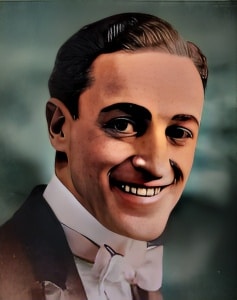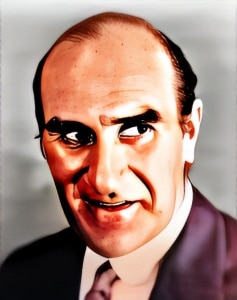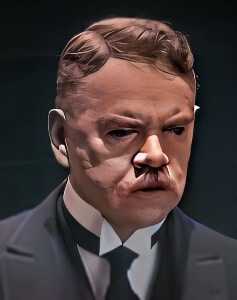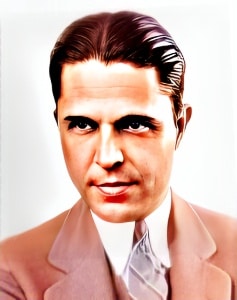 Leo White, a prolific actor, comedian, and director, was born on November 10, 1882, in Graudenz, German Empire (now Grudziądz, Poland).
Leo White, a prolific actor, comedian, and director, was born on November 10, 1882, in Graudenz, German Empire (now Grudziądz, Poland).
He became a prominent figure in the early days of Hollywood, known for his versatility and comedic talent. Over the course of his career, White left an indelible mark on American silent cinema.
Leo White began his journey in the world of entertainment as a circus performer before transitioning into acting. He joined a troupe that performed in both the United States and Europe, honing his performance skills and developing a knack for physical comedy. His background in physical comedy would become a defining feature of his career.
In the early 1910s, White made the transition to film during the silent era. He quickly became known for his comedic roles, often playing eccentric and humorous characters. His expressive face and gift for slapstick humor made him a favorite in silent comedies.
One of White’s early notable film appearances was in the 1914 film “Tillie’s Punctured Romance,” starring the legendary Charlie Chaplin. This was one of the earliest feature-length comedies, and White played the role of a priest in a comedic scene alongside Chaplin and Marie Dressler. His performance contributed to the film’s success, and he continued to collaborate with Chaplin on other projects.
White’s ability to adapt to various comedic styles and portray a wide range of humorous characters made him a sought-after actor in silent comedy. He worked with several well-known comedians of the era, including Mabel Normand and Ben Turpin.
His career extended beyond acting. In the early years of Hollywood, many actors and comedians also took on roles as directors, writers, and producers. White was no exception. He directed several short films during the silent era, showcasing his talent behind the camera as well as in front of it.
Throughout the 1910s and 1920s, Leo White’s career thrived, and he made a substantial impact on American cinema. His contributions to comedy were particularly significant, and he is remembered for his physical comedy, timing, and versatility.
In the late 1920s, White successfully transitioned to sound cinema, but the changing landscape of the film industry presented challenges for many silent film actors. Despite this, he continued to work in sound films, and his distinctive voice added a new dimension to his performances.
One of his sound film appearances was in the 1933 film “Duck Soup,” directed by Leo McCarey and starring the Marx Brothers. White played the role of Chicolini’s defense attorney and delivered memorable comedic moments in this classic comedy.
Leo White’s career spanned a transformative period in American cinema, from the silent era to the introduction of sound. His ability to adapt and remain relevant in both mediums demonstrated his enduring talent and comedic prowess.
Leo White’s dedication to his craft and his impact on the world of entertainment are remembered as significant contributions to the early days of Hollywood. His work continues to be celebrated by those who appreciate the history of American cinema and the comedians who helped shape its comedic legacy.
He passed away on September 20, 1948, in Hollywood, California, leaving behind a legacy of laughter and a rich history in American cinema. His enduring talent and contributions to comedy in film remain a testament to the importance of laughter and entertainment in the world of cinema.
Loading live eBay listings...




